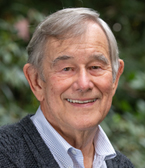‘Th’ Supreme Coort follows th’ election returns.” So said Mr. Dooley, the bartender created by cartoonist Finley Peter Dunne at the start of the 20th century. Those who follow the court today often say that nothing much has changed. Yet if the justices consider public opinion next term, it will be a straightforward decision in Friedrichs v. California Teachers Association, a case challenging the California “union shop” law that levies an agency fee on all teachers who refuse to join a union.
Public Opinion
In its Spring issue, Education Next takes note of the 50th anniversary of a 1965 publication issued by the U. S. Department of Labor entitled “The Negro Family.” The report, assembled under the direction of Daniel Patrick Moynihan, made the case that civil rights legislation needed to be only the first step toward emancipation of black Americans from the legacies of the past. The next step should address the fact that approximately 25 percent of black children were being raised in single-parent families.
Three polls have come out within the past week: the Education Next (EdNext) poll, the Associated Press poll (about which I have commented previously), and, now the Phi Delta Kappan (PDK) poll, published by a journal with close ties to schools of education across the country.
While many in state capitols and Washington, D.C. are placing bets against state and national accountability systems that range from No Child Left Behind to Common Core State Standards, the public remains faithful to its long-standing commitment to hold schools, students and teachers accountable.
If correct, a barn burner of a study has just been released by the once self-proclaimed Marxist, Martin Carnoy, and his good friend Richard Rothstein. If you take into account the extraordinary size of the proletariat in the United States, and the miniscule size of its bourgeois, U. S. students are doing almost as well in math and reading as students in other industrialized countries. Even the Koreans don’t do much better, they say.
However Wisconsin's recall election turns out on Tuesday, teachers unions already appear to be losing a larger political fight—in public opinion. In our latest annual national survey, we found that the share of the public with a positive view of union impact on local schools has dropped by seven percentage points in the past year. Among teachers, the decline was an even more remarkable 16 points.
This past week the NAACP, the National Urban League and other civil-rights groups collectively condemned charter schools. Claiming to speak for minority Americans, the organizations expressed "reservations" about the Obama administration's "extensive reliance on charter schools." They specifically voiced concern about "the overrepresentation of charter schools in low-income and predominantly minority communities."
Yesterday President Barack Obama delivered a pep talk to America's schoolchildren. The president owes a separate speech to America's parents. They deserve some straight talk on the state of our public schools.
According to the just released Education Next poll put out by the Hoover Institution, public assessment of schools has fallen to the lowest level recorded since Americans were first asked to grade schools in 1981. Just 18% of those surveyed gave schools a grade of an A or a B, down from 30% reported by a Gallup poll as recently as 2005.
This book explores the application of Scalia’s textualism and originalism to education law and reflects upon Scalia’s teachings and his pedagogy. Education law may seem to be an odd vehicle for considering Scalia’s constitutional approach, but thinking about schools requires attention to political fundamentals—freedom of speech, free exercise of religion, equality of opportunity, federalism, and the proper role of the expert. Legal scholars, philosophers, and political scientists provide both critiques and apologies for Scalia’s approach.
This is the last issue of Education Next for which I will serve as editor-in-chief. In an era when many magazines have disappeared from newsstands, it is an honor that so many of you continue to find the journal’s material worthy of your consideration.
A star has at least five points. So I was told by a senior colleague at a time in my life when I was desperately trying to figure out how to burnish just one. Even by that standard, James S. Coleman is securely situated in a celestial constellation, as five points can be discerned even if one looks only at his research on schools.
A comprehensive exploration of 21st Century school politics, Teachers versus the Public offers the first comparison of the education policy views of both teachers and the public as a whole, and reveals a deep, broad divide between the opinions held by citizens and those who teach in the public schools. Among the findings:
• Divisions between teachers and the public are wider and deeper than differences between other groups often thought to contest school policy, such as Republicans and Democrats, the young and the old, the rich and the poor, or African Americans and whites.
In 1996, Cardinal John J. O’Connor, archbishop of New York, proposed to Rudy Crew, chancellor of the New York City public school system, that the city’s most troubled public-school students be sent to Catholic schools, where he would see that they were given an education. New York City’s mayor at that time, Rudolph Giuliani, a voucher supporter, attempted to secure public funds that would allow Catholic schools to fulfill the cardinal’s offer. But voucher opponents condemned the idea on the grounds that it violated the no establishment of religion clause of the First Amendment.



